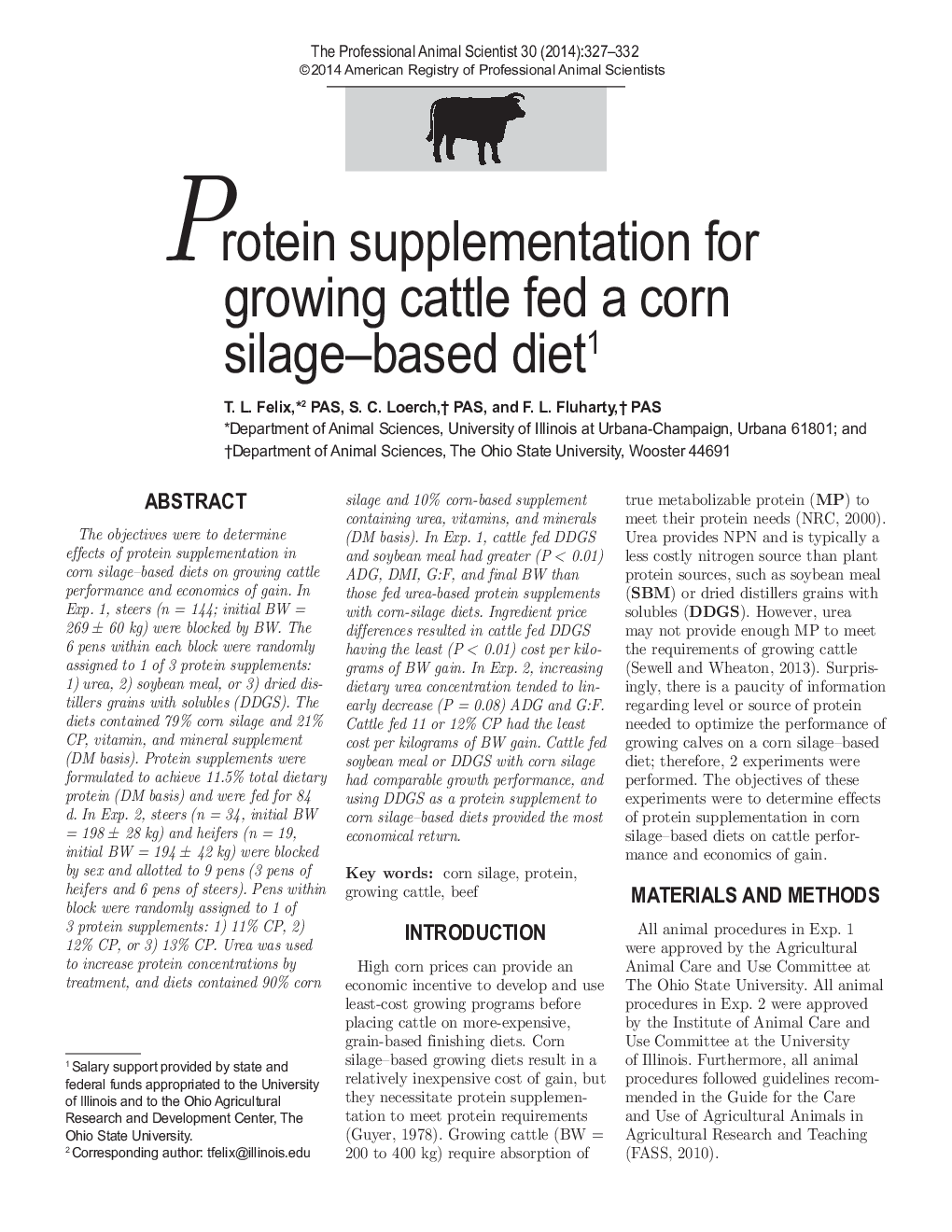| Article ID | Journal | Published Year | Pages | File Type |
|---|---|---|---|---|
| 2453821 | The Professional Animal Scientist | 2014 | 6 Pages |
Abstract
The objectives were to determine effects of protein supplementation in corn silage-based diets on growing cattle performance and economics of gain. In Exp. 1, steers (n = 144; initial BW = 269 ± 60 kg) were blocked by BW. The 6 pens within each block were randomly assigned to 1 of 3 protein supplements: 1) urea, 2) soybean meal, or 3) dried distillers grains with solubles (DDGS). The diets contained 79% corn silage and 21% CP, vitamin, and mineral supplement (DM basis). Protein supplements were formulated to achieve 11.5% total dietary protein (DM basis) and were fed for 84 d. In Exp. 2, steers (n = 34, initial BW = 198 ± 28 kg) and heifers (n = 19, initial BW = 194 ± 42 kg) were blocked by sex and allotted to 9 pens (3 pens of heifers and 6 pens of steers). Pens within block were randomly assigned to 1 of 3 protein supplements: 1) 11% CP, 2) 12% CP, or 3) 13% CP. Urea was used to increase protein concentrations by treatment, and diets contained 90% corn silage and 10% corn-based supplement containing urea, vitamins, and minerals (DM basis). In Exp. 1, cattle fed DDGS and soybean meal had greater (P < 0.01) ADG, DMI, G:F, and final BW than those fed urea-based protein supplements with corn-silage diets. Ingredient price differences resulted in cattle fed DDGS having the least (P < 0.01) cost per kilograms of BW gain. In Exp. 2, increasing dietary urea concentration tended to linearly decrease (P = 0.08) ADG and G:F. Cattle fed 11 or 12% CP had the least cost per kilograms of BW gain. Cattle fed soybean meal or DDGS with corn silage had comparable growth performance, and using DDGS as a protein supplement to corn silage-based diets provided the most economical return.
Keywords
Related Topics
Life Sciences
Agricultural and Biological Sciences
Animal Science and Zoology
Authors
T.L. PAS, S.C. PAS, F.L. PAS,
